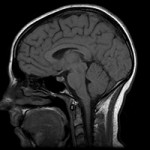Magnetic resonance imaging
Magnetic resonance is a medical imaging examination that uses an electromagnetic field and radio frequencies to obtain extremely precise images of the various structures of the human body.
For this, the human body must be in an environment where there is a magnetic field.
In fact, magnetic resonance makes it possible to visualize certain anatomical regions that computed tomography (CT-SCAN) would make it difficult to investigate, in particular the interior of the column, where the spinal cord is located, as well as the lower-posterior part of the brain. .

Moreover, in the context of screening, it is important to specify that a positive mammogram does not necessarily mean that you have breast cancer. Indeed, only about one in 10 women with a positive mammogram suffers from a cancerous tumor. So, in the event of a positive test, you must follow the recommendations of your doctor.
General information
- MRI is the examination of choice to assess neurological problems (aneurysm, multiple sclerosis, spinal cord compression, trauma)
- Evaluation of musculoskeletal problems (cyst, mass, cartilage evaluation, tear of ligaments or tendons)
- Allows the surgeon to plan surgery based on location and extent of pathology
- The radiologist may need to use contrast material during the examination.
Contraindications
For safety reasons, the patient is asked to fill in a questionnaire beforehand on the contraindications of the MRI examination which are:
- Wearing a pacemaker
- Wearing a neurostimulator
- Presence of metallic foreign bodies in the eye, an X-ray is mandatory
- Aneurysm vascular staples implanted before 1983 (several are not made of titanium)
- Wearing iron prostheses implanted before 1983
Preparing for your exam
- It is extremely important not to move during the examination.
- It is important to bring, during your examination, your images and reports of relevant examinations done elsewhere (X-rays, MRI, CT-Scan, Ultrasound), this is necessary for comparison purposes.
- If you are claustrophobic, that is to say that you are afraid in confined spaces, for example elevators, specify this to your doctor or when making an appointment so that you can be prescribed a relaxing medication. Being accompanied during your exam is therefore mandatory.
Information
It is important to bring, during your examination, your images and reports of relevant examinations done elsewhere (X-rays, MRI, CT-Scan, Ultrasound), this is necessary for comparison purposes.
